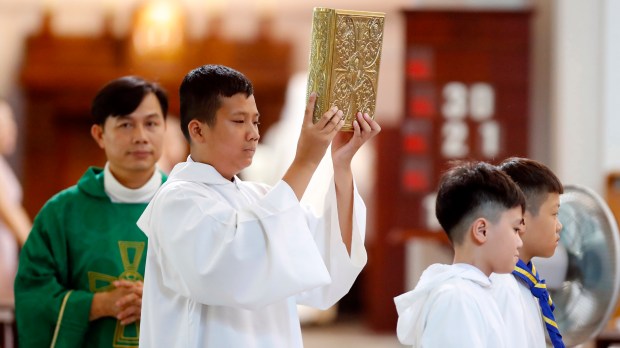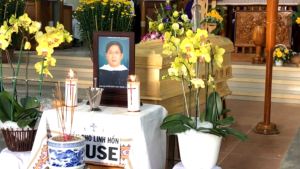The 9th meeting of the joint working group between Vietnam and the Holy See was held in Hanoi on April 21-22, 2022, the Vatican press office said in a statement released April 22. This is another step in the regular dialogue established between Rome and Vietnam, despite the absence of official diplomatic relations.
The Vatican delegation was led by Archbishop Mirosław Wachowski, undersecretary for relations with states. Vietnam’s was led by Deputy Foreign Minister Ha Kim Ngoc.
An agreement was reached to establish the conditions for the installation in Vietnam of a resident pontifical representative. Currently, the country does not have an apostolic nunciature, but the nuncio in Singapore, Archbishop Marek Zalewski, also acts as the pontifical representative for Vietnam. He travels to the country for periods not exceeding one month, and requires the agreement of the authorities.
The Holy See’s press release mentions the “deep and vibrant life of the Catholic community” in the country, referring in particular to its contribution “to the common good and prosperity of Vietnam.” In particular, it refers to the concrete help provided by Catholics “during the most critical periods of the pandemic,” especially in hospitals and in assisting people in need.
The Holy See delegation also paid a courtesy call on some of the country’s authorities and will meet in the coming days with members of the Bishops’ Conference, meeting in a plenary assembly in Thai Binh, the Holy See statement said.
The 10th meeting of the joint working group will be held in the Vatican, at a date to be determined. The previous session was also held in Rome on August 21-22, 2019.
A regular but contested dialogue
Despite the absence of formal diplomatic relations, contacts at the highest level have been conducted in recent years. Thus President Trân Dai Quang was received by Pope Francis on November 23, 2016. His predecessor Nguyên Minh Triêt met with Benedict XVI on December 11, 2009.
Unlike its Chinese neighbor, the Vietnamese regime has never cut ties with Rome and an episcopal hierarchy has been maintained, at the cost of sometimes painful compromises. Indeed, the appointment of bishops requires an agreement with the communist government.
Despite a gradual improvement in religious freedom, sporadic incidents still occur regularly. For example, Aleteia reported the brutal intrusion of Communist Party members during a Mass celebrated by the Archbishop of Hanoi on February 20, 2022. The Law on Beliefs and Religions, which went into effect on January 1, 2018, is still seen as more of a surveillance tool than a guarantee of freedom. In the past, some Vietnamese bishops have criticized the Vatican for being too complacent with the communist regime, as reported by Churches in Asia in 2016.
Two bishops emeritus of Vietnam then denounced “the great number of concessions to which the Church had to resign itself after 1975, in the face of the communist regime, in particular with regard to the choice of candidates for the episcopate.” They regretted a choice that “has caused and will cause in the future great damage to the independence, freedom and prestige of the Church.”
However, thanks to a certain institutional recognition that has materialized in the form of flourishing seminaries, the Catholic Church in Vietnam has experienced a strong growth in vocations since the beginning of the 21st century. For example, the diocese of Hanoi, which had about 40 incardinated priests in the year 2000, now has 150. The local clergy has become missionaries and is exporting to Europe: many Vietnamese priests are currently working in other countries such as France and Italy. But at home the Catholic community remains fragile. For the diocese of Ho Chi Minh City (ex-Saigon), the share of Catholics in the population is estimated at 8% today, compared to 17% in 1970.


